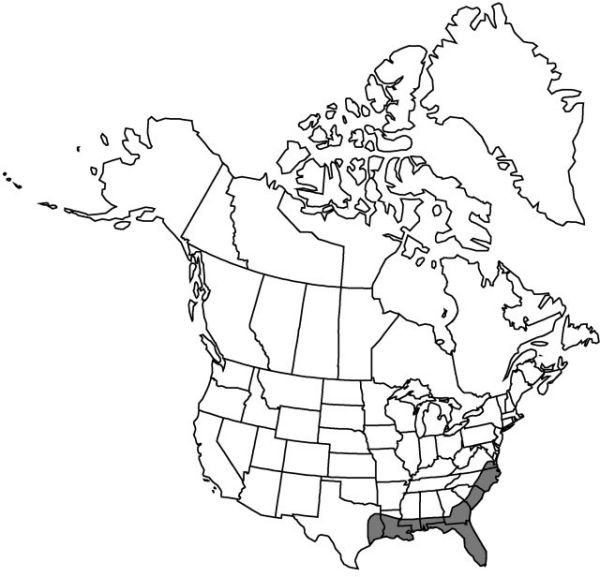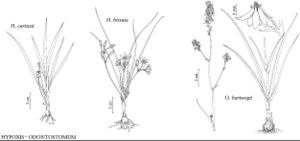Hypoxis curtissii
in J. K. Small, Fl. S.E. U.S., 287, 1329. 1903.
IllustratedEndemic
Synonyms: Hypoxis erecta var. leptocarpa Engelmann & A. Gray Hypoxis hirsuta var. leptocarpa (Engelmann & A. Gray) Brackett Hypoxis leptocarpa (Engelmann & A. Gray) Small
Revision as of 23:17, 27 May 2020 by imported>Volume Importer
Leaves 3–12 mm wide, soft, flexible, glabrous or nearly so. Scape (4–)5–13(–27) cm. Inflorescences racemose, 1–3(–7)-flowered; proximal 2 flowers, when present, not paired; bracts (3–)5–20(–80) mm. Flowers: tepals 4–8(–11) × 0. 5–2.1 mm, 2 or less times longer than pedicel, usually 2 or less times longer than ovary; anthers 1–1.8 mm; ovary cylindric, (2–)3–6(–7) × 1–3 mm, glabrate or sparsely pubescent; pedicel (2–)5–12(–20) mm, usually shorter than bracts. Seeds black, lustrous, 1.2–1.6 mm, coarsely muricate.
Phenology: Flowering year round.
Habitat: Riverbanks, floodplains
Elevation: 0–100 m
Distribution

Ala., Fla., Ga., La., Miss., N.C., S.C., Tex., Va.
Discussion
When not in flower, the rosettes of Hypoxis curtissii can be easily mistaken for Cyperus, which grows in the same habitats.
Selected References
None.
Lower Taxa
None.
